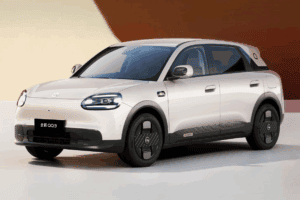Real life simulation test by AutoTrader took place in what it termed South African driving conditions that differ from those in Europe.

Despite ongoing scepticism and the worsening energy crisis, the sales of electric vehicles in South Africa continue to soar as more and more marques introduce battery electric vehicles or BEVs to the local market.
EVs in South Africa
A segment currently spanning 61 individual models from the Great Wall Motors (GWM) Ora 03 300 Super Luxury at R686 950, to the Porsche Taycan Turbo S at R4 414 000, the steadily growing acceptance is expected to increase further by means of the government’s long delayed, and supposedly sector supporting, White Paper Report.
ALSO READ: EV transition will ‘take time’ as DTIC releases White Paper Report
Tabled last year, but only set to be detailed later this month in full when Finance Minister Enoch Godongwana releases the funding model as part of his Budget Speech, the main point of content, not applicable in Europe, continues to be range and charging infrastructure.
Also on the up thanks to ‘partnerships’ between brands comprising Audi, Jaguar, Mercedes-Benz and BMW, with the added help of GridCars, the possibility of driving an electric car between the country’s major cities is both plausible and still a topic of much debate based on the average EVs’ range and subsequent waiting time for a full charge.
The challenge
Now in its third year, AutoTrader’s #ElectricCarChallenge addressed the question of range anxiety directly at the end of last year by putting four EVs against each other at the Gerotek testing facility outside Pretoria.
The aim? To see how far the vehicle could travel on a single charge at 120 km/h with the air-conditioning set to 21°C.
“The tests are based on South African conditions rather than the cooler European testing scenarios,” AutoTrader CEO George Mienie said.

“In addition to setting a benchmark for EV variants, the aim is to produce a historical reference point upon which to look back and evaluate battery performance advancements year-on-year, as battery technology continues to evolve at pace”.
During the two prior evaluations in 2021 and 2022, the tested cars were driven from 100%-0% and from 100% to 10%.
According to Mienie, tests have shown that letting an EV’s battery run down to 0% will have a negative impact on long term battery durability, warning, “in order to maintain good battery life, EVs should not be driven to lower than 10%”.
As such, none of the four vehicle’s battery dropped to less than 10% as a means of what AutoTrader calls, simulating real-life driving conditions.
Line-up
Priced below R2.5-million, the vehicles lined-up consisted of;
- GWM Ora 03 400 GT Ultra Luxury – R835 950 – 400 km claimed range
- BMW iX1 xDrive 30 xLine – R1 205 000 – 400 km claimed range
- Mercedes-Benz EQA 250 Progressive – R1 176 350 – 402 km claimed range
- Volvo XC40 T6 Recharge – R1 108 000 – 435 km claimed range
As a way of testing fuel efficiency in addition to EV’s, the hybrid Xs version of the Toyota Corolla Cross was also subjected to testing in the same manner, but with a change as instead of leaving the batteries run down, a typical commuter run of 44 km on the highway and in stop-start city traffic was undertaken.
Findings
The final results were as follows:
- iX1: 238.7 km in two hours 2 min 19 sec: Average speed: 117. 5 km/h
- Ora: 199.9 km in one hour 34 min and 49 sec: Average speed: 105.2 km/h
- EQA: 254.7 km in two hours eight min and 53 sec. Average speed: 117.3 km/h
- XC40: 214.5 km in one hour 49 min and 33 sec. Average speed: 116.2 km/h
As for the Corolla Cross, the tests showed a fuel consumption of 6.7 L/100 km, which equates to a range of 537 km on the 36-litre tank.
In town driving, the hybrid setup recorded a consumption of 4.6 L/100 km, amounting to a range of 782 km.
“Battery technology continues to evolve at pace, with advancements bringing longer ranges. This is likely to reduce range anxiety and accelerate greater EV adoption in South Africa,” the findings concluded.
NOW READ: Survey confirms more South Africans are ‘accepting’ hybrids
Support Local Journalism
Add The Citizen as a Preferred Source on Google and follow us on Google News to see more of our trusted reporting in Google News and Top Stories.






